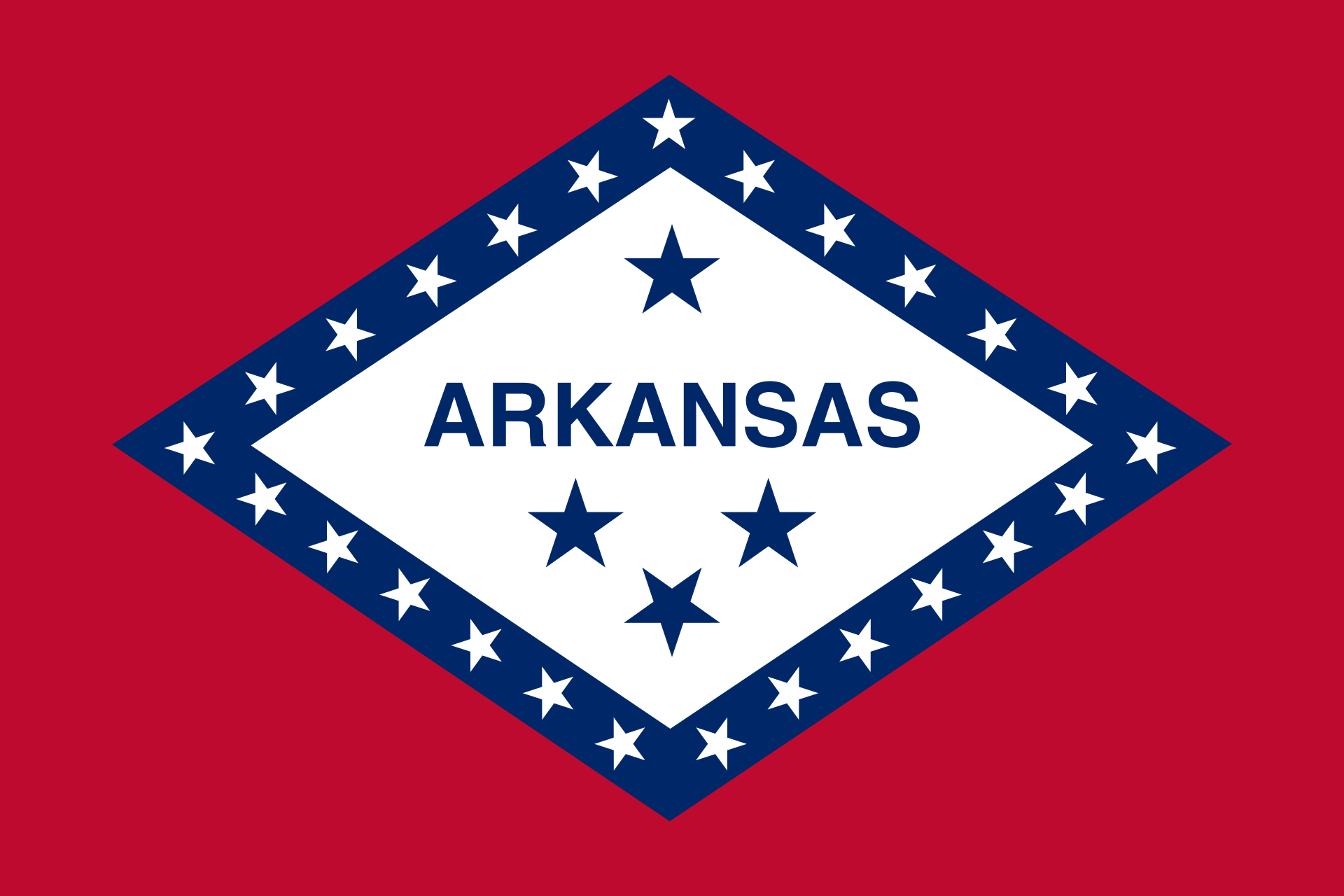A new Arkansas law requires initiative ballot titles to be written at or below an eighth-grade reading level. Gov. Sarah Huckabee Sanders (R) signed House Bill 1713 (HB 1713) into law on April 14, 2025. The law is one of six enacted since 2018 that address the readability of ballot language.
The House approved the bill in a vote of 60-23, with zero Democrats voting in favor, 17 voting against, and two not voting. Among House Republicans, 60 voted in favor, six voted against, and fifteen did not vote.
The Senate passed the bill in a vote of 29-5. Among Senate Democrats, two voted in favor, four voted against, and four did not vote. Among Senate Republicans, 27 voted in favor, one voted against, and one did not vote.
The bill prohibits the attorney general from certifying the ballot title of a proposed initiative if the ballot title is written above an eighth-grade reading level according to the Flesch-Kincaid Grade Level formula as it existed on January 1, 2025. The Flesch-Kincaid Grade Level (FKGL) analyzes text and produces a score equivalent to the estimated number of years of U.S. education required to understand a text. The score is based on the number of syllables, the number of words, and the number of sentences in a text.
Sen. Mark Johnson (R-17) said, "It makes sure our constituents [can] understand something they have to read and vote on in a short amount of time and be able to ascertain exactly what the purpose of [a ballot measure] is."
Sen. Clarke Tucker (D-14) said, "I agree with the intent of making ballot titles easier to read," but noted that since the Flesch-Kincaid grade level formula calculates scores based in part on sentence length, "until we authorize ballot titles to be written in multiple sentences, we shouldn't pass this because we would be prohibiting all ballot measures."
Ballot title readability in Arkansas and other states
Since 2018, four initiatives have been on the ballot in Arkansas, with Flesch-Kincaid Grade Level scores averaging 22.5 and ranging from 20 to 25. The average length of the ballot titles was 509 words, with a range from 59 (Issue 5 of 2018) to 805 words (Issue 4 of 2022).
From 2018 to 2024, the average ballot title grade for ballot measures across the U.S. was between 15 and 20.
Arkansas is one of 23 states with laws addressing ballot measure readability.
Laws requiring ballot language not to exceed an eighth-grade reading level were enacted in New York in 2023 and Rhode Island in 2024.
In 2023, North Dakota enacted a bill requiring summaries of ballot measures to be written in "plain, clear, understandable language using words with common, everyday meaning."
In 2019, Maine passed a law requiring ballot questions to be written as simple as possible.
Additional ballot measure process changes in Arkansas
During the 2025 legislative session, the Arkansas State Legislature passed 18 bills changing laws governing ballot measure processes in the state. As of April 21, Gov. Sanders had signed 13 of the bills into law. Changes made by the bills include:
- requiring fiscal impact statements to appear on the ballot alongside ballot measures (House Bill 1637);
- establishing residency requirements for paid canvassers (House Bill 1574);
- allowing the attorney general to reject proposed initiatives if the attorney general determines that the proposal conflicts with the U.S. Constitution or federal laws (House Bill 1222);
- requiring canvassers to notify signers verbally or in writing that petition fraud is a criminal offense (Senate Bill 207);
- requiring photo ID to sign an initiative (Senate Bill 208);
- allowing the secretary of state to disqualify signatures collected by a canvasser if the secretary of state finds by a preponderance of evidence that the canvasser violated any state laws related to canvassing (Senate Bill 209);
- requiring canvassers to watch signers read ballot titles or read ballot titles aloud to signers (Senate Bill 210);
- requiring canvassers to submit a sworn affidavit certifying their compliance with laws related to canvassing, perjury, forgery, and fraudulent practices in signature gathering (Senate Bill 211).
The League of Women Voters of Arkansas filed a lawsuit on April 21 alleging that the bills violate the First and Fourteenth Amendments of the United States Constitution as well as the state constitution's provisions surrounding the initiative process.
As of April 21, 2025, Ballotpedia had tracked 566 legislative proposals concerning ballot measures, initiatives, veto referendums, referrals, local ballot measures, and recall elections in 48 states during 2025. As of April 21, 36 bills had been enacted into law. Four of the 36 bills are proposed constitutional amendments passed by state legislatures in 2025 that require voter approval in 2026 to take effect. Three additional bills were passed but vetoed.



